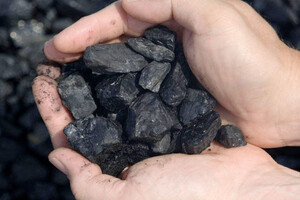Ulaanbaatar has returned to the idea of exporting coal through Russian ports in the Far East, from which coal can come out mixed with Russian.

“Mongolian mixture” may allow Russia to circumvent Western sanctions on coal. This was reported by the Russian newspaper Vedomosti.
It is noted that Ulaanbaatar has returned to the idea of exporting coal through Russian ports in the Far East. Trading will take place with the countries of the Asia-Pacific region.
At the same time, neither the discovery nor the development of new deposits by Mongolia was announced.
The publication suggests that Mongolia does not have coal for new trade agreements. The product will be Russian, but will be sold under the guise of Mongolian.
The sale of Russian oil was recently discovered under the same scheme. This was reported by The Wall Street Journal and Bloomberg.
Yes, Russia has begun to load its raw materials on tankers at the address “direction unknown”. Then Russian oil was mixed with another, becoming a “Latvian mixture” and “Turkmen mixture”.
Such a scheme was observed, in particular, the American company Shell . The company mixed 49.99% of oil from Russia with 50.01% of oil from other sources. Unofficially, this mixture was called “Latvian mixture”, which, according to Bloomberg, is produced, among others, in Latvian Ventspils, where Russian oil products are delivered from Primorsk.
Export energy is a key source of funding for increasing Russia's military power and its aggression against Ukraine. To shed light on those countries that continue to buy Russian oil, gas and coal, and to explain how imports and the value of imports have changed since the full-scale invasion, the Center for Energy and Clean Air Research (CREA) has gathered detailed information on fossil fuel supplies from Russia. transport and pipelines. Read about it in the material
Foreign Minister Dmytro Kuleba addressed Shell about this. He asked if Russian oil smelled of Ukrainian blood. Shell later apologized for implementing the scheme. And she promised to give up gradually from Russian oil.
Since the invasion of Ukraine, 11 million barrels of Russian oil have been shipped under this scheme compared to zero before the war.
Export of energy resources is a key source of funding for increasing Russia's military power and its aggression against Ukraine. To shed light on those countries that continue to buy Russian oil, gas and coal, and to explain how imports and the value of imports have changed since the full-scale invasion, the Center for Energy and Clean Air Research (CREA) has gathered detailed information on fossil fuel supplies from Russia. transport and pipelines. Read about it in the material of the leading analyst of the Center for Energy and Clean Air Research Lauri Milivirt and the head of the energy department of the NGO “Ecodia” Konstantin Krynytsky – “Financing Putin's War in Europe” .




